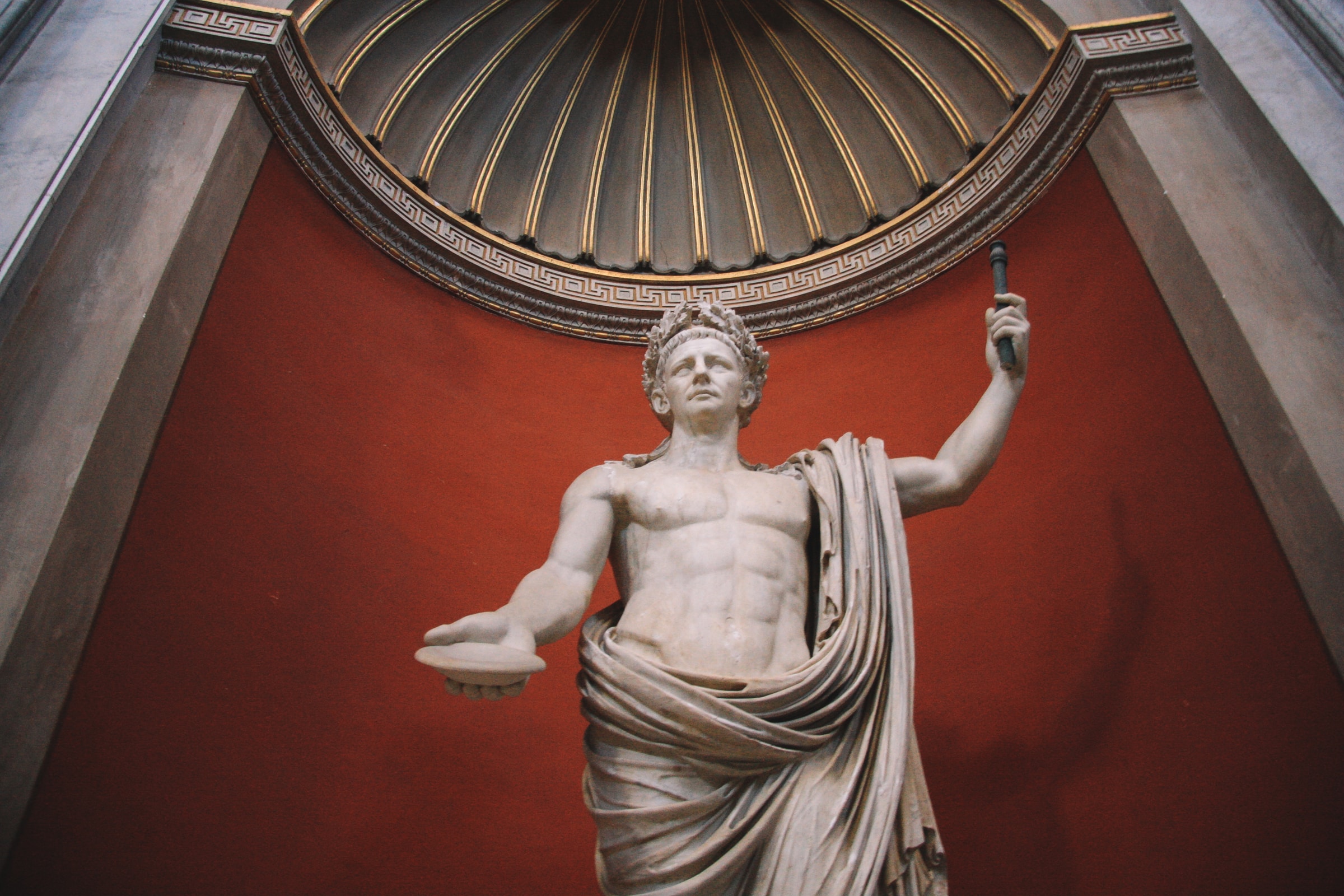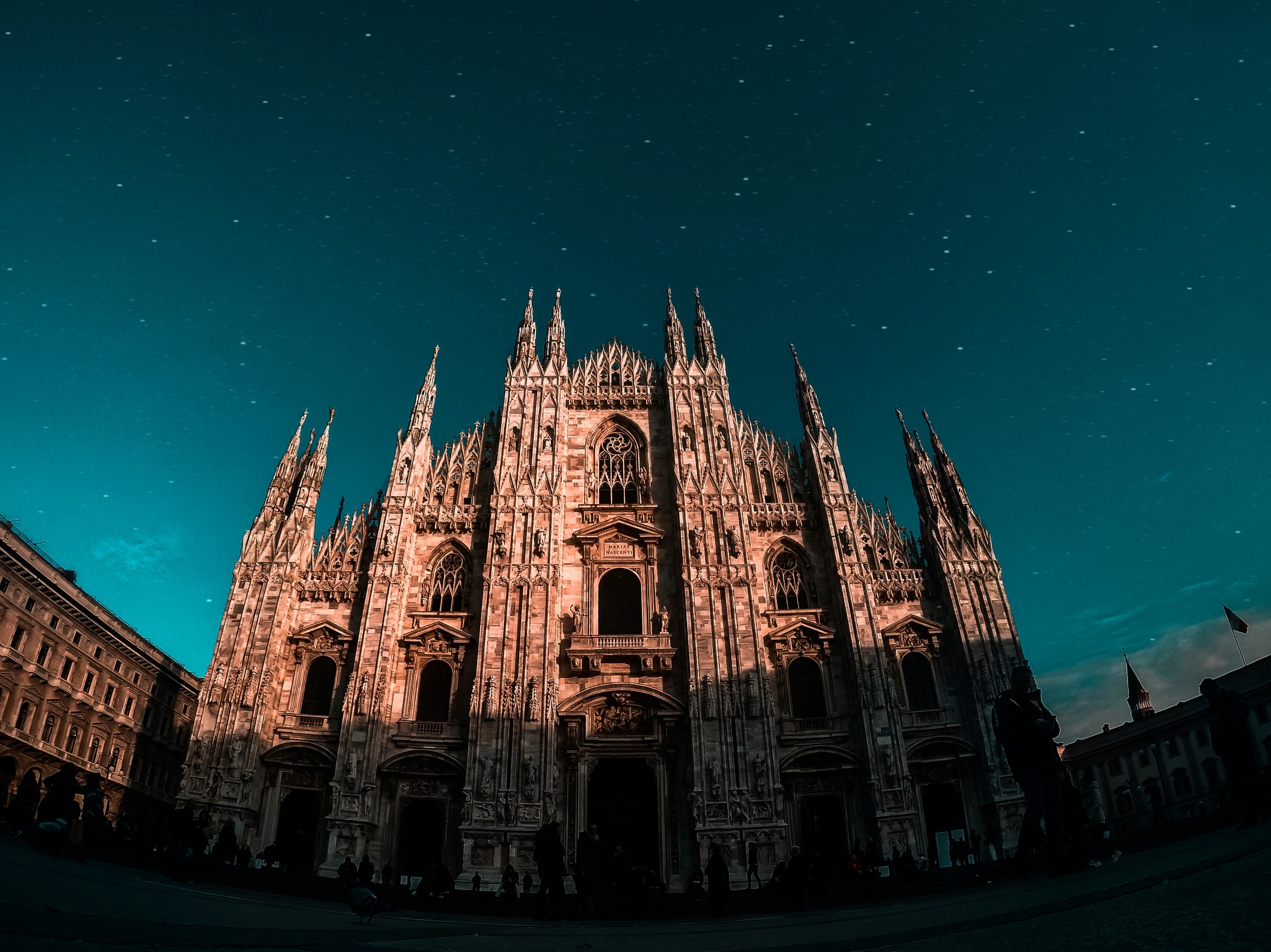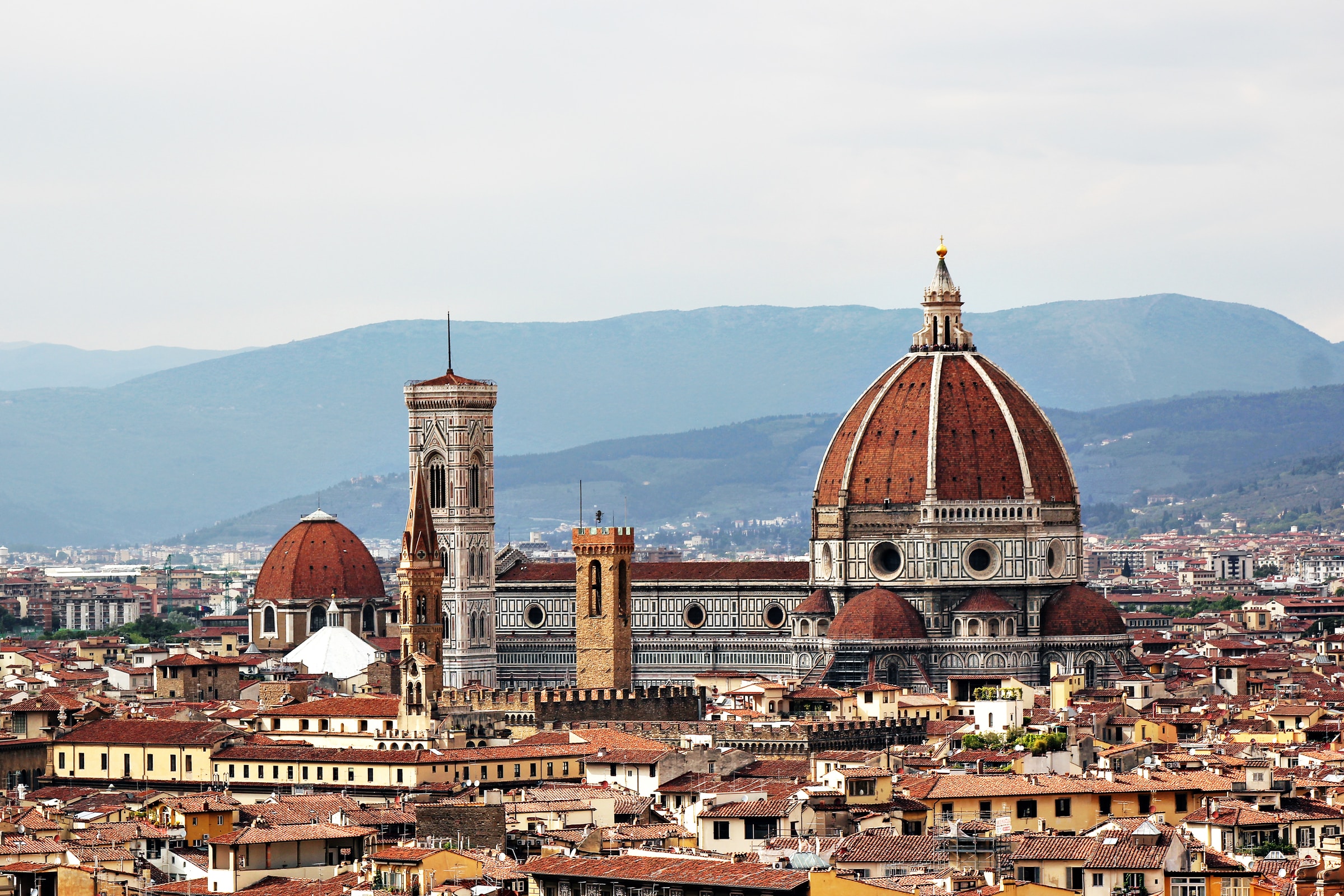<< Hide Menu
2.1 The Influence of Language and Culture on Identity
3 min read•june 18, 2024
Kallie Hoffman
Kallie Hoffman
History
The history of Italy is TOO extensive to discuss in a few short sentences, but the following are some of the most prominent points:
- Italy's location on the Mediterranean allowed it to rise as one of the ancient civilizations
- 1200 B.C: The first societies emerged
- 509 B.C: The Romans defeated the Etruscans and expanded the empire to Portugal, Syria, Britain, and North Africa
- 27 B.C: First Roman Emperor: Augustus Caesar
- L'importanza: Cesare è stato uno dei leader di maggior successo. Ha trasferito Roma da una repubblica a un impero, ha ripristinato la pace e la proprietà dello stato e ha cambiato ogni aspetto della vita romana

- L'importanza: Cesare è stato uno dei leader di maggior successo. Ha trasferito Roma da una repubblica a un impero, ha ripristinato la pace e la proprietà dello stato e ha cambiato ogni aspetto della vita romana
Image Courtesy of iam_os, from Unsplash
- 9th Century A.C: Italian city-states rose again, and flourished in trade, but were extremely divided
- 1861: Kingdom of Italy established
- WWI: Italy took the side of the allied powers but was left in poverty at the war's end
- WWII: Benito Mussolini and his fascist party rose to power and joined the war on the side of Germany and Japan
- Curiosità: Nel 1946, Mussolini e la sua padrona furono fucilati e uccisi, e i loro corpi furono appesi nella piazza della città di Milano per imbarazzo pubblico
- 1946: general elections were held and the Italian Republic was established For more information on Italian history, check out a few more resources from the Encyclopedia Britannica and History World.
Language 🗣 👥
The window into a culture, la finestra su una cultura...
Italian is one of the romance languages rooted in Latin. In school, the children learn how to speak Italian and English, but most people also communicate in a regional dialect that demonstrates their unique identity and specific culture.
Dialetto - una versione di una lingua
- 28 indigenous dialects
- Dialects carry significant meaning because a particular language points to the culture of that group—interactions with language = interactions with culture
Geography 🏙🏝🌋🏔
Italy is a Mediterranean country in southern Europe. Not only is it one of the largest countries on the continent, but is also the most diverse in terms of geography. The nation can be divided into the following three regions:
- Northern Italy
- Dominated by the Po River, one of the most productive agricultural regions
- A large percentage of the Italian population
- Ex. Milan, Genoa, Turin###### Image Courtesy of Benjamin Voros, from Unsplash

- Central Italy
- Dominated by hills and mountains (colline e Montagne)
- Famously fertile plains—highly productive agriculturally
- Ex. Florence, Pisa, Siena, Rome (popular tourist destinations)###### Image Courtesy of Jonathan Korner

- Southern Italy
- Great natural beauty, but lacks industrial output
- Sandy beaches and famous archaeological sites
- Home to VOLCANO Vesuvius- La Historia: Il monte Vesuvio è responsabile dell'incendio della città di Pompei, che ora è diventata una grande attrazione turistica. È scoppiato l'ultima volta nel marzo 1944
- Ex. Naples, Foggia, Salerno

Image Courtesy of Carlos Hevia
There are beautiful sites and places to explore all across Italy, but generally, there are the cities of the North and the beaches of the South...
Strive for Five Vocab: Data Edition 🔑 🔑
- Spaziare da... fino a... - range from
- Passare da...a... - switch from
- Aumentare del x % - increase by
- Essere in aumento - to be on the rise
- Scendere del x % - Go down by
- Essere in calo - to be falling
- Essere pari a - to be equal to
- Rispetto a - Compared to
- Il tasso di - rate of
- La media - average

© 2024 Fiveable Inc. All rights reserved.